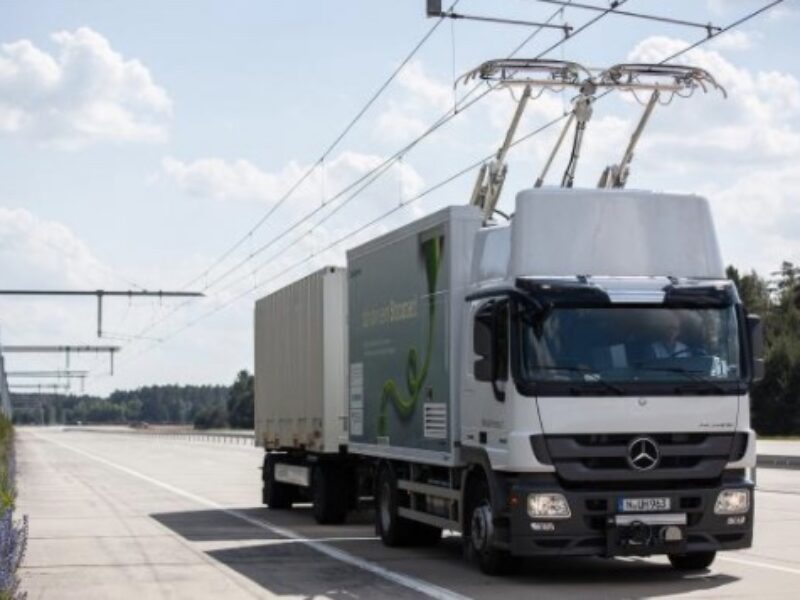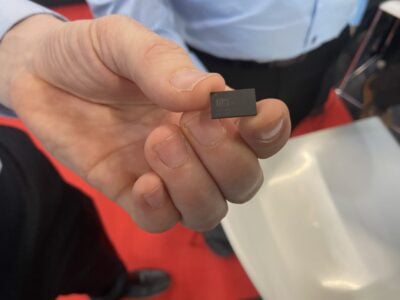
Overhead power supply for trucks could be viable, study says
The “Feasibility Study for the Determination of the Potentials of the Hybrid Overhead Line Truck”, commissioned by the German Federal Ministry of Transport and conducted by the Fraunhofer Institute for System and Innovation Research (ISI) along with several partners, shows that trolley trucks can be economically viable, but that some hurdles in terms of infrastructure and acceptance must be overcome beforehand.
Road transport is responsible for roughly a third of CO2 emissions from road traffic. To achieve decarbonisation, the overhead line truck is a possible solution. According to the sztudy, such trucks can be economically viable in a mass market if the overhead infrastructure is well developed and used.
Due to their higher efficiency compared to diesel trucks, overhead line trucks can contribute decisively to the reduction of greenhouse gas emissions from the strongly growing road-bound freight transport by using electricity from predominantly renewable energy sources, the study concludes. Project manager professor Martin Wietschel from Fraunhofer ISI, says: “To achieve this goal, only the 4,000 to 5,000 kilometers with the highest use of heavy trucks would have to be equipped with overhead lines. The necessary investments of between € 8 and € 12 billion are not particularly high compared to the development of other infrastructures. “
However, there are a number of relevant obstacles to the introduction: Above all, the initially unprofitable overhead infrastructure would probably needed to be pre-financed with state support. In addition, the authors recommend a pan-European solution to improve the infrastructure utilization and harmonization of European transport policy.
Another obstacle is the limited acceptance by truck manufacturers, which would have to change their product range and in addition would run the risk of losing parts of their current value chain which is widely based on conventional powertrains. Likewise, logistics companies, might have a loss of flexibility during the deployment planning. It is also open as to how residents and users deal with visibility.
However, Wietschel also sees the need for further research, because it is unclear how such innovative drive systems could be integrated into the existing power grid. “These trucks require very large amounts of electricity and this demand for electricity can hardly be shifted according to energy economics.” Likewise, it would be difficult to synchronize the power demand for the trucks with the times when renewable energy sources offer the best yield.
For the study, the trolley trucks were rated for the decarbonization of road-bound freight traffic compared to other new electricity-based fuels. It was found that fuel cell trucks with hydrogen are also an interesting option, among other things because of their efficiency advantages compared to other electricity-based fuels such as methanol. Which of the options would turn out the most promising one should be further investigated, the study concludes.
Related articles:
E-trucks with overhead power lines to be tested on Autobahn
Overhead lines may help power long-distance electric trucks
 If you enjoyed this article, you will like the following ones: don't miss them by subscribing to :
eeNews on Google News
If you enjoyed this article, you will like the following ones: don't miss them by subscribing to :
eeNews on Google News




